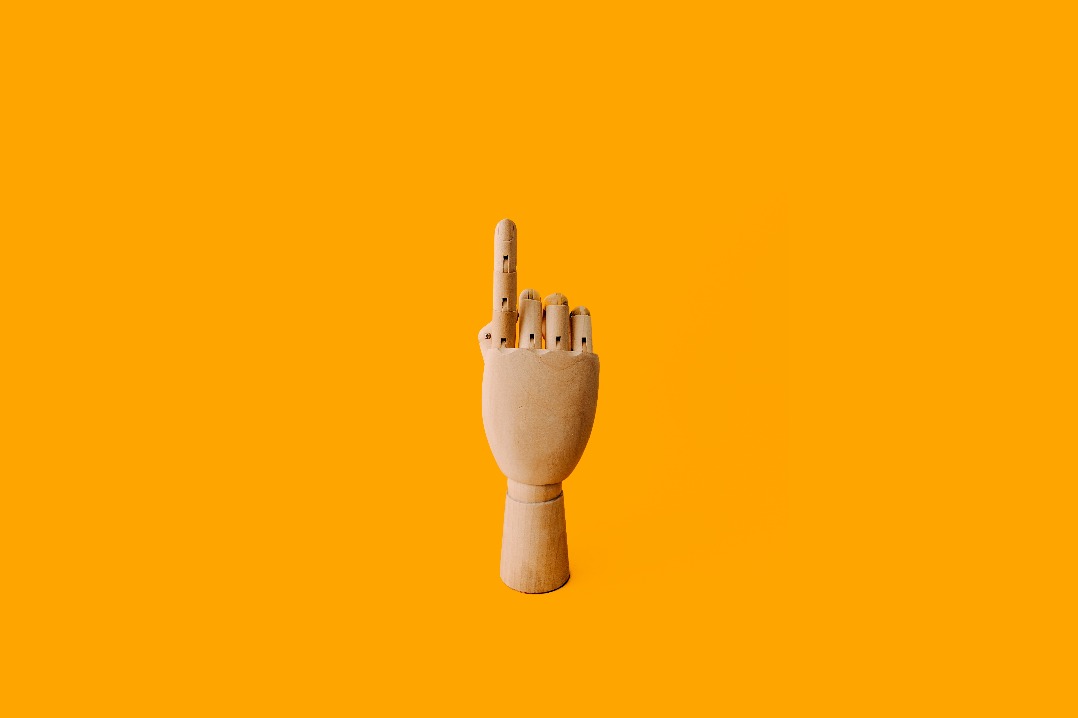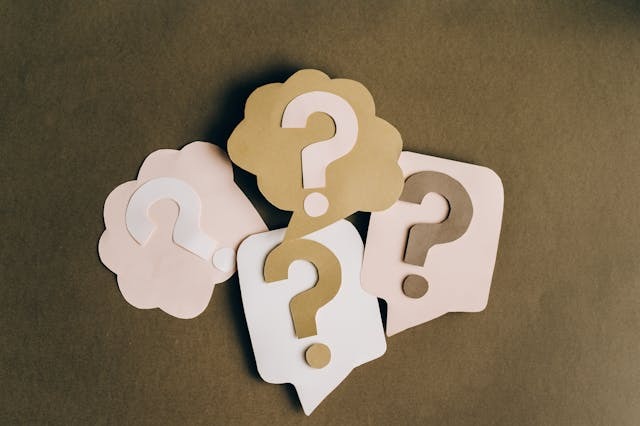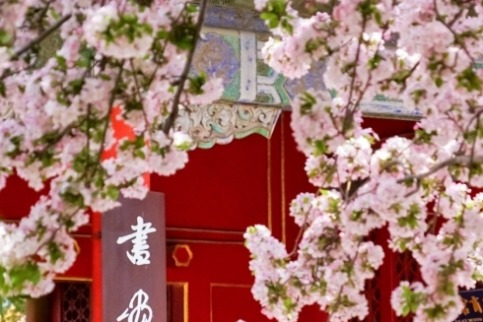Hot take? 脱口而出的意见
中国日报网 2018-10-12 10:34

Reader question:
Please explain “hot take”, as in: The rapper gave his hot take on current politics….
My comments:
First off, a rapper is someone performing rap, or rap music.
Rappers are called musicians and their art is called music, but there’s little or nothing very musical about rap in terms of lilting melodies. Rather, rap is just someone mouthing off a lot of rhythmic words in rapid succession. Non fans are never able to catch those words because they are blurted out so fast. Jay Chou is an example.
But that’s neither here or there. We’re currently dealing with a certain rapper who “gave his hot take” on current politics. Here, “hot take” refers to the rapper’s immediate reaction or assessment on some political event.
“Take” being one’s assessment or opinion, as in, “John, what’s your take on Brexit?”
“Hot”, as in “hit the iron while it’s hot”, refers to one’s immediate reaction.
For example, if Brexit had happened and Britain really broke away from the European Union and you as a political analyst immediately wrote on twitter that all European investment in the UK would stop, that’d be your hot take on the matter. Here, “hot take” suggest your idea might not be well thought over. It came off the top of your head. It may not match reality to a T. In other words, continental Europeans would probably continue to work with the British in areas where there is a common profit to seek.
In our example sentence, the rapper giving his two cents about current affairs may not be worth much, but his “hot take” or words may be very provocative and may attract a lot of attention.
Those are the two most important points about anyone’s hot take on something. One, it has to be hot. If your opinion or analysis comes well after the dust has settled, so to speak, it’s not a hot take. Second, one’s “hot take” is usually casual, flippant and not well thought out. It may hence prove to be very provocative and controversial.
Okay, here are a few media examples for you to read and to get a better feel of “hot take”:
1. A British middle-aged white man gave his hot take on American Black art. Piers Morgan decided that the world needed his feelings on Beyoncé’s newly released visual album “Lemonade.” He thinks Beyoncé is using the “race card” to make money.
Morgan wrote a column Monday with the headline calling Beyoncé a “Born-again Black woman” and lamenting when entertainers “go all political.” He said that Beyoncé is exploiting the racial political climate to make money and that her appeal is beyond race.
“I never like it when entertainers go all political. The cynic in me believes it’s rarely done for genuine reasons but for strictly commercial ones.”
...
Before Morgan tried to slam Beyoncé's politics in her visual album, he compliments her as a person. Morgan talks about meeting Beyoncé during his now-canceled show “Piers Tonight.”
“I once spent a delightful day with her in London for CNN and she was bright, warm, funny, sharp and incredibly impressive.”
But after his initial compliments, the article makes it seem like Morgan recently found out that Beyoncé is Black, and it makes him uncomfortable. He spends a significant portion of the article building up Beyoncé's audience as multicultural and then he tries to use her own statements about her personal experience with racism against her political interests.
“‘Did you experience racism as you grew up?’ I asked.
“‘A bit, but I feel like with my career I’ve now broken barriers. I don’t think people think about my race. I think they look at me as an entertainer and a musician and I’m very happy about that because that’s how I look at people. It’s not about color and race, and I’m happy that’s changing.’”
The assertion here is that because Beyoncé is a global artist, and her race has not stopped her from success, her race no longer matters. Morgan is trying to make the argument that her current Black political activism is somehow at odds with her music's crossover appeal.
He said that he’s particularly troubled by Beyoncé featuring the mothers of both Michael Brown and Trayvon Martin holding pictures of their dead sons.
“I have huge personal sympathy for both women and there is no doubt that African-Americans have been treated appallingly by certain rogue elements within the country’s police forces. But I felt very uneasy watching these women being used in this way to sell an album. It smacks of shameless exploitation.”
Morgan really wants the old Beyoncé back, the one who was nice to him in the car, and sang pop songs that didn't make him uncomfortable.
“But I have to be honest, I preferred the old Beyoncé. The less inflammatory, agitating one. The one who didn’t use grieving mothers to shift records and further fill her already massively enriched purse. The one who didn’t play the race card so deliberately and to my mind, unnecessarily. The one who wanted to be judged on her stupendous talent not her skin color, and wanted us all to do the same.”
Unfortunately for Morgan and anyone with similar feelings, we have to tell you that Beyoncé was always Black. She was actually born that way and she is certainly not the first artist to get political about racial topics or anything else.
- Piers Morgan Tries to Slam Beyoncé by Calling Her a ‘Born-Again Black Woman’, ATTN.com, April 25, 2016.
2. The rivalry between Kevin Durant and LeBron James has been one brewing even before the former signed with the Golden State Warriors. Back in his days with Oklahoma City, Durant lost convincingly to a Miami Heat team, giving James his first NBA championship.
The sour taste was likely wiped out of his mouth after showing out in the NBA Finals last season, garnering Finals MVP honors and a 4-1 result that paid James back with the same coin he doled out, back in 2012.
For Warriors’ coach Steve Kerr, this second highly-anticipated regular season matchup between the Warriors and Cavaliers only serves as evidence to both players going down as two of the best to ever lace them up. In true sarcastic fashion, the Golden State boss gave his hot take on the matter.
“I know this is gonna be shocking, but I think they’re both gonna end up as two of the greatest players of all-time,” said Kerr. “Anybody else had that between their minds?”
“LeBron’s body of work has already put him there, as one of the top few ever and KD feels like he’s on his way. They’re two unbelievably unique players, given their size, strength, skillset, versatility; and we are all lucky to be watching them in this current age of the NBA.”
- Steve Kerr says Kevin Durant, LeBron James to go down as ‘2 of the greatest players of all-time’, ClutchPoints.com, January 15, 2018.
3. Being a feminist must be hard work. Perhaps you’ve got a newspaper column to fill with your hot take on the latest sexist outrage. Or perhaps you have a university sexual-harassment policy to write. Or a government minister to consult about a proposed new law. Or a hefty budget to administer. You’ve got the salary, a platform for your views, and the capacity to influence what happens in almost every institution in the country. And yet the entire basis for you being in this fortunate position, for walking the corridors of power, is your powerlessness. The bind for today’s professional feminist is the more power and influence she gains, the harder she needs to work to show that women are still oppressed.
Some career feminists get around this conundrum by claiming they are not representing their own interests but selflessly fighting for other women. Apparently, countless hordes of downtrodden women, unable to speak up for themselves, are just waiting for feminists to give voice to their concerns. But as only a small minority of women identify as feminists (estimates vary between a third and seven per cent), the response to all this speaking on behalf of others seems to be a resounding ‘no thanks’.
The last resort of the professional, well-paid, powerful feminist, desperate to prove her credentials as a member of an oppressed group, is to allude to violence. The experience of violence – whether actual, imagined or potential – appears to unite all women, allowing the most privileged to claim common cause with women who are struggling just to get by. Helen Pankhurst, great-granddaughter of Suffragette Emmeline, expresses this succinctly: ‘Violence against women is the one factor that infects every aspect of women’s lives.’
As feminists increasingly take positions of power, tackling violence against women drives their agenda. The World Health Organisation tells us that violence against women ‘is a major public-health problem’. The United Nations tells us it is ‘a grave violation of human rights’. The British government describes violence ‘against women and girls’ as a serious crime that has ‘a huge impact on our economy, health services, and the criminal-justice system’.
Of course, violence against women and girls deserves to be taken seriously and perpetrators should be severely punished. But the lives of women in poverty-stricken and wartorn countries are very different to those of women in England. Likewise, adult women have far more agency and control over their lives than girls. Conflating the experiences of women all around the world, and of adult women with children, allows professional feminists to claim suffering by proxy.
At the same time, the definition of violence seems to broaden by the day. The internationally agreed definition of violence against women and girls is: ‘Any act of gender-based violence that results in, or is likely to result in, physical, sexual or psychological harm or suffering to women [or girls], including threats of such acts.’ In the UK and the US, violence encompasses sexual harassment – which includes winking, whistling and looking at someone for too long. Amnesty International describes women’s experiences of ‘violence and abuse on Twitter’. In 2017, the organisers of a women’s strike against President Trump described ‘the violence of the market, of debt, of capitalist property relations, and of the state; the violence of discriminatory policies against lesbian, trans and queer women’.
This is not violence as a physical act, but violence as metaphor. No wonder it is experienced everywhere. The World Health Organisation describes violence against women as an ‘epidemic’. We are told that over a third of girls have been sexually harassed at school and that more than a third of women have experienced sexual harassment at work. But then we also learn that two women are killed each week by a current or former partner. And here, immediately, is the problem with violence as metaphor. Real violence becomes relativised. When winking and nasty tweets are described as acts of violence, the word is no longer enough to describe acts of physical brutality and murder. Violence has become nothing more than a badge permitting membership of an inclusive feminist club, and this does little to support women who really are in need of help.
- No, women aren’t at risk from men, Spiked-Online.com, August 2, 2018.
本文仅代表作者本人观点,与本网立场无关。欢迎大家讨论学术问题,尊重他人,禁止人身攻击和发布一切违反国家现行法律法规的内容。
About the author:

Zhang Xin is Trainer at chinadaily.com.cn. He has been with China Daily since 1988, when he graduated from Beijing Foreign Studies University. Write him at: zhangxin@chinadaily.com.cn, or raise a question for potential use in a future column.
(作者:张欣 编辑:丹妮)

















 英语点津微信
英语点津微信 双语小程序
双语小程序